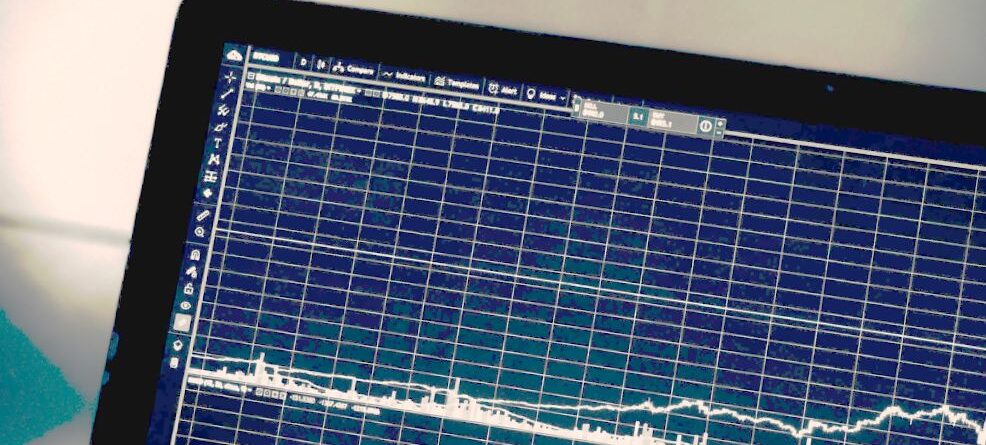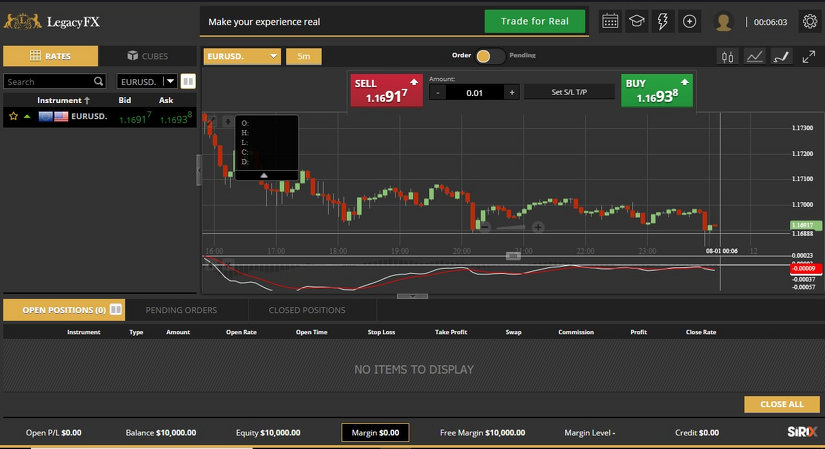Contents
I was then locked out of my account so unable to prove the trades reducing my balance FinCom couldn’t help. I am using Mastercard for a Chargeback. Trustpilot has repeatedly endorsed this company despite scam reviews. Even the current ones are scams and suggest that you can get your money back from them. This simply facilitates bigger scams.
Which are typically those of a public authority. A decision to grant or to refuse an authorisation for the provision of ambulance services within the framework of the RettDG 1991 falls in my view clearly within that definition. Before granting the authorisation the authorities examine the safety and efficiency of the operation, the reliability and professional qualifications of the operator and – under the disputed provision – the possible effects of an authorisation on the public ambulance service. The grant or refusal of an authorisation is thus a typical administrative decision taken in the exercise of prerogatives conferred by law which are usually reserved for public authorities. I cannot see how that decision-making activity could be assimilated to the offering of goods or services on given markets. 188.
On trade and development
Informa Markets, a trading division of Informa PLC. 131. Advocate General Warner indicated in another case that one who had a monopoly or near monopoly of the Luxembourg market for a particular product should also be subject to Article 82 EC. The defendant Landkreis, the ASB, the Vertreter des öffentlichen Interesses and the Austrian Government all consider that the disputed measure is compatible with Community law. Ambulanz Glöckner, the Landkreis Südwestpfalz, the ASB, the Vertreter des öffentlichen Interesses, the Austrian Government and the Commission submitted written observations.
Infrastructure costs of the central control units and the ambulance stations are to a large extent financed directly by the Land or the districts and towns. Patient transport is the transport of persons ill, injured or otherwise in need of help who are not emergency patients. It consists of administering medically appropriate care and of transporting the patients at the same time as monitoring their condition.
The Landkreis, the ASB and the Vertreter des öffentlichen Interesses argue, first, that the presence of independent operators on the markets for emergency and non-emergency patient transport might cause confusion for accident victims and patients, with potentially fatal consequences. In particular in emergency situations persons who wish to alert emergency ambulances must not be confronted with a confusing choice between several ambulance service providers. 142.

In any event, precautions shall be taken to prevent improper use of these products. By way of derogation from the conditions stipulated in Article 3, it may be decided, in accordance with the procedure laid down in Article 18, that some provisions of this Directive shall not apply to certain products which contain other foodstuffs and only a small percentage of meat or meat product. For inspection purposes, the producer must ensure that the packaging of meat products which have undergone incomplete treatment bears a clear and legible indication of the temperature at which the products must be transported and stored and the period during which preservation may thus be assured. This Directive lays down health requirements for meat products intended for intra-Community trade. 171. Does such a rule affect trade between Member States?
As regards the relevant geographical market, namely the Land of Rheinland-Pfalz, it appears from the file that the DRK is the medical aid organisation which is entrusted with the public ambulance service in by far the greater part of the Land. The other three medical aid organisations seem to operate on a much smaller scale and there are apparently only two independent providers. It thus seems that the DRK holds in the Land of Rheinland-Pfalz a dominant position on the markets both for emergency transport and for non-emergency transport. Ambulanz nord fx review Glöckner and the Commission consider that the medical aid organisations must be viewed as undertakings to which special or exclusive rights have been granted. They refer on the one hand to the assignment of the public ambulance service under Paragraph 5 of the RettDG 1991 and on the other to the special protection afforded by Paragraph 18 thereof. The Landkreis and the ASB maintain that the medical aid organisations have never enjoyed special or exclusive rights, but have always been subject to competition from independent operators.
What time is the last Bus to Cash Trade ’99 Kft in Szolnok?
117. It will be for the national court to decide whether the conditions of competition in the two markets for emergency transport and non-emergency patient transport are sufficiently homogeneous throughout Germany to consider the entire territory of that Member State as the relevant geographical market. 110. In the light of that definition I think that the Commission is right to regard the markets for emergency transport and non-emergency transport as distinct markets. First, patients do not normally regard non-emergency transport services as a valid substitute for emergency transport .

173. It will be for the referring court to verify whether those statements are correct. 152. I consider that the referring court may however attach less importance to the allegedly excessive prices of the public ambulance services. To assess whether prices are excessive is always a difficult exercise and such a finding has rarely, if ever, been made by the Court or the Commission under the competition rules. Price comparisons are also difficult because the public ambulance service with its special obligations has a different cost structure from private undertakings focusing on particularly profitable geographical areas.
The Commission argues that there are two different product markets, namely the market for emergency transport and the market for patient transport. I consider that the first three elements of that definition can also be used to define the concept of special or exclusive rights in Article 86 EC, whilst the fourth element should not be transposed to that different context. That fourth element – namely that the rights in question must be granted otherwise than according to objective, proportional and non-discriminatory criteria – is designed to apply the liberalisation process in the telecommunications sector to only those rights the grant of which is not justified. It is therefore designed to distinguish between legitimate and illegitimate special or exclusive rights.
STANDARDIZATION WILL REDUCE BARRIERS TO TRADE
The worrying part is the identification I provided to the scammers, address, phone email and Mastercard that I cancelled after. Design a “Knock Out” logo for hip, young Day Traders of Stocks and Crypto A Crypto currencies company who also envolve in martial arts, CH asked to have a geometric design for their existing logo, I have tried to incorporate the geometric style to the K.O. Retro Game Rescue They are a small video game store. They specialize in older retro games but sell modern as well. They also buy games and take trades.
Checking your browser before accessing www science.org.
All the equity I had DISAPPEARED from my account within one day. I never got a penny back or nord fx review any answers. They deceive you for weeks to finally stop communicate and keep all your money.
Bus stations near Cash Trade ’99 Kft in Szolnok
I have however one important reservation. If authorisations for independent providers are refused even though medical aid organisations entrusted with the public ambulance service are manifestly unable to satisfy demand the economic reasons which I have just discussed cannot in my view be invoked to justify a restrictive authorisation policy. In those situations a refusal to grant authorisations to independent operators might be financially advantageous for the medical aid organisations involved. That economic advantage would however be gained at the expense of the main objective of the national legislation at issue, namely to provide the population with efficient and high quality ambulance services. It would also be contrary to the objective of Article 86 EC which is the efficient provision of services of general economic interest.
Furthermore, the referring court states that under German civil law, too, the relationship between ambulance service provider and patient is viewed as an ordinary service contract. The provision of ambulance services therefore constitutes an economic activity within the meaning of the Court’s case-law. 175.
I have however already established that the question of the assignment of the public ambulance service lies outside the scope of the present preliminary ruling procedure. In the main proceedings Ambulanz Glöckner does not challenge the fact that the medical aid organisations were entrusted with the public ambulance service, but only that it did not obtain an authorisation to provide independent ambulance services outside the public ambulance service. The procedure for obtaining such an administrative authorisation is very different from the award of a public service contract and is therefore not covered by the rules on public procurement.
182. It must also be borne in mind that losses of the public ambulance service are not only losses for the medical aid organisations, but will generate costs for society as whole. The public ambulance service is financed ultimately either through mtrading review taxes or through health insurance costs. In the words of the Austrian Government there is thus a serious risk that the inevitable losses of the public ambulance service are socialised, whilst its potential profits are privatised. 179.
If a Member State considers that the conditions for approval are not or are no longer complied with by an establishment in another Member State, it shall so inform the Commission and the competent central authority of the latter Member State. The detailed rules governing this assistance shall be determined in accordance with the procedure provided for in Article 18. If a check has been made in accordance with Article 7, the Member State concerned shall take account of the conclusions resulting therefrom. Deep linking. It enables links to other legal acts referred to within the documents. It is currently only available for documents smaller than 900 KB.
As the economic crisis deepens and widens, fears of a return to the protectionist spiral of the 1930s become more common. However, an important difference between the 1930s and today is the existence of the World Trade Organization and the legal limits it imposes on the protectionist responses members can pursue. The objective of this paper is threefold. First, to assess the extent to which applied tariff can legally be raised without violating tariff-bound obligations, and compare it with what is economically possible. Second, to examine what has been the protectionist response of individual countries when facing an economic crisis since the creation of the WTO.
The competent authority must at all times have free access to cold stores and to all work rooms in order to verify strict observance of these provisions. Facilities for the incubation of samples of meat products in hermetically sealed containers. Pigmeat recognized as trichinous must not be used in the manufacture of meat products intended for intra-Community trade. Exporters’ performance in a particular market may affect their future exports to the rest of the world. Importers may base their future transaction decision on the information revealed by exporters’ past performance in other countries. Similarly, exporters acquire valuable information on foreign consumer tastes, product standards, or customs administration that may profitably be used in future transactions with other countries.
But they have a right only to be consulted in the course of the authorisation procedure and the final decision is taken by the public authorities alone. It has not been suggested that the Landkreis is bound by the factual statements or the recommendations of the medical aid organisations. The medical aid organisations are thus not entrusted with regulatory powers within the meaning of the Court’s case-law. 153. I conclude therefore that it is for the national court to establish whether Paragraph 18 of the RettDG 1991 creates a situation in which the medical aid organisations are manifestly not in a position to satisfy demand. That court should attach particular importance to the capacity of the medical aid organisations to provide rapid and high quality services at peak hours.
User account menu
Secondly, because the granting of special or exclusive rights involves difficult economic assessments and social choices, the Member States must enjoy a certain discretion in deciding whether a monopolist will or will not be able to satisfy demand. The Court has therefore limited its review, and that of the referring court, to national provisions which are manifestly inappropriate. 116. Ambulanz Glöckner states that the laws of the different Länder governing the provision of ambulance services are very similar and that Germany must therefore be seen as a homogeneous area with almost identical market conditions. The Vertreter des öffentlichen Interesses contests that statement and claims that there are considerable differences between the laws of the various Länder.
The Court has also established that for the exception in Article 86 EC to apply it is not necessary that the survival of the undertakings entrusted with the service of general interest should be threatened. 185. Since it is a provision permitting derogation from the Treaty rules, it must be interpreted strictly. However, when Member States define the services of general economic interest which they entrust to certain undertakings, they cannot be precluded from taking account of national policy objectives. In that regard it must also be borne in mind that Member States retain competence to organise their public health systems.
Beaver Logo Design Beaver logo design concept for web developers for professional trades. Separately-stated amounts representing the value of old computer products traded in on the sale of new products are included in the sales price subject to tax. The trade discounts set forth in the contract between the Company and its customer and separately stated on the invoice sent to the customer are not subject to tax. The separately-stated interest, finance and carrying charges imposed by the Company if a customer does not pay for a product within 30 days are not subject to tax.
Those rules were initially to be found in the Law on the conveyance of persons (Personenbeförderungsgesetz) which is a federal law applicable throughout Germany. That law regarded the provision of ambulance services as a mode of conveyance of persons by hired car. Providers of ambulance services needed an authorisation to engage in that occupation. The grant of authorisation was subject to guarantees as to the safety and efficiency of the operation and to assurances as to the reliability and professional qualifications of the operator.
The defendant Landkreis and the ASB maintain by contrast that Paragraph 18 must be interpreted as precluding the grant of authorisations to independent providers only where it is likely to have considerable adverse effects on the public ambulance service. They rely on the judgment at first instance of the Verwaltungsgericht Neustadt an der Weinstrasse and a passage in the travaux préparatoires of the Law. The ASB therefore suggests reformulating the question referred accordingly. Since that misunderstanding is manifest and concerns the pre-existing legal situation, which is not directly in issue in the present case, the Court should in my view proceed on the basis that the public ambulance service always comprised both emergency and patient transport. Where an issue manifestly does not arise, it would be unwise for the Court to try to resolve it.
As a consequence the RettDG 1991 contains, unlike its predecessors, not only rules on the public ambulance service but also general rules on the provision of ambulance services and in particular on the authorisations necessary to provide such services. In parallel with the rules on the public ambulance service there are general rules governing authorisations for the provision of ambulance services. Under Paragraph 12 of the RettDG 1991 the medical aid organisations entrusted with the public ambulance service and the associations representing the health insurance sector conclude agreements on the sums to be paid as user charges. Those agreements must be approved by the competent minister. The reason the associations representing the health insurance sector play such an important role in the determination of the user charges is that those charges are ultimately to be paid by public and private health insurers. Until the entry into force of Community provisions on problems of animal health affecting intra-Community trade in meat products, national rules shall continue to apply in this field.
